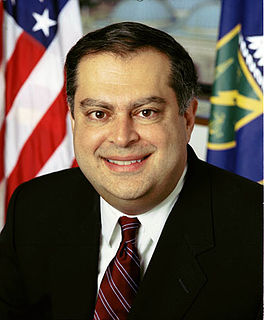A Quote by Alexander Hamilton
The proposed Constitution, so far from implying an abolition of the State governments, makes them constituent parts of the national sovereignty, by allowing them a direct representation in the Senate, and leaves in their possession certain exclusive and very important portions of sovereign power. This fully corresponds, in every rational import of the terms, with the idea of a federal government.
Quote Topics
Abolition
Allowing
Certain
Constitution
Direct
Every
Exclusive
Far
Federal
Federal Government
Fully
Government
Governments
Idea
Implying
Import
Important
Leaves
Makes
National
National Sovereignty
Parts
Portions
Possession
Power
Proposed
Rational
Representation
Senate
Sovereign
Sovereignty
State
State Government
State Governments
Terms
Them
Very
Related Quotes
The proposed constitution, therefore, even when tested by the rules laid down by its antagonists, is, in strictness, neither a national nor a federal constitution; but a composition of both. In its foundation it is federal, not national; in the sources from which the ordinary powers of the government are drawn, it is partly federal, and partly national; in the operation of these powers, it is national, not federal; in the extent of them again, it is federal, not national; and finally, in the authoritative mode of introducing amendments, it is neither wholly federal, nor wholly national.
I believe that the Constitution is not hostile to the idea that national problems can be solved at the national level through the cooperative efforts of the three coequal branches of government, the Congress, the executive and courts. But not every president, not every legislator and not every judge agrees that the federal government has the power to address and to try to remedy the twin national problems of poverty and access to equal opportunity.
The Constitution does not protect the sovereignty of States for the benefit of the States or state governments as abstract political entities, or even for the benefit of the public officials governing the States. To the contrary, the Constitution divides authority between federal and state governments for the protection of individuals.
In explaining the Constitution, James Madison, the acknowledged father of the Constitution, wrote in Federalist Paper 45: 'The powers delegated by the proposed Constitution to the Federal government are few and defined. Those which are to remain in the State governments are numerous and indefinite. The former will be exercised principally on external objects, as war, peach, negotiation, and foreign commerce.' Has the Constitution been amended to permit Congress to tax, spend and regulate as it pleases or have Americans said, 'To hell with the Constitution'?
It is not certain that with this aid alone [possession of arms], they would not be able to shake off their yokes. But were the people to posses the additional advantages of local governments chosen by themselves, who could collect the national will, and direct the national force; and of officers appointed out of the militia, by these governments and attached both to them and to the militia, it may be affirmed with the greatest assurance, that the throne of every tyranny in Europe would be speedily overturned, in spite of the legions which surround it.
The State governments possess inherent advantages, which will ever give them an influence and ascendancy over the National Government, and will for ever preclude the possibility of federal encroachments. That their liberties, indeed, can be subverted by the federal head, is repugnant to every rule of political calculation.
It is important to strengthen the State governments; and as this cannot be done by any change in the Federal Constitution (for the preservation of that is all we need contend for), it must be done by the States themselves, erecting such barriers at the constitutional line as cannot be surmounted either by themselves or by the General Government. The only barrier in their power is a wise government. A weak one will lose ground in every contest.
The federal government neither has the power to site transmission lines, nor do we build them. That's done, as people know, in their own communities. The siting decisions and the permitting is done at the local level, or by state governments if it's interstate in nature. And federal government - this is one area we have no authority.
Our government does not exist to decide the rights, nor to grant them. Our government exists to protect them. And that is why we have a constitution that limits the power of the federal government to a few specific, but important things and we have abandoned that. We have abandoned it in both political parties.
The states have authority to interpret the Constitution, enforce it, and protect the people from violations of it by the federal government In the first place, there is not a syllable in the plan under consideration which directly empowers the national courts to construe the laws according to the spirit of the Constitution, or which gives them any greater latitude in this respect than may be claimed by the courts of every State.


























